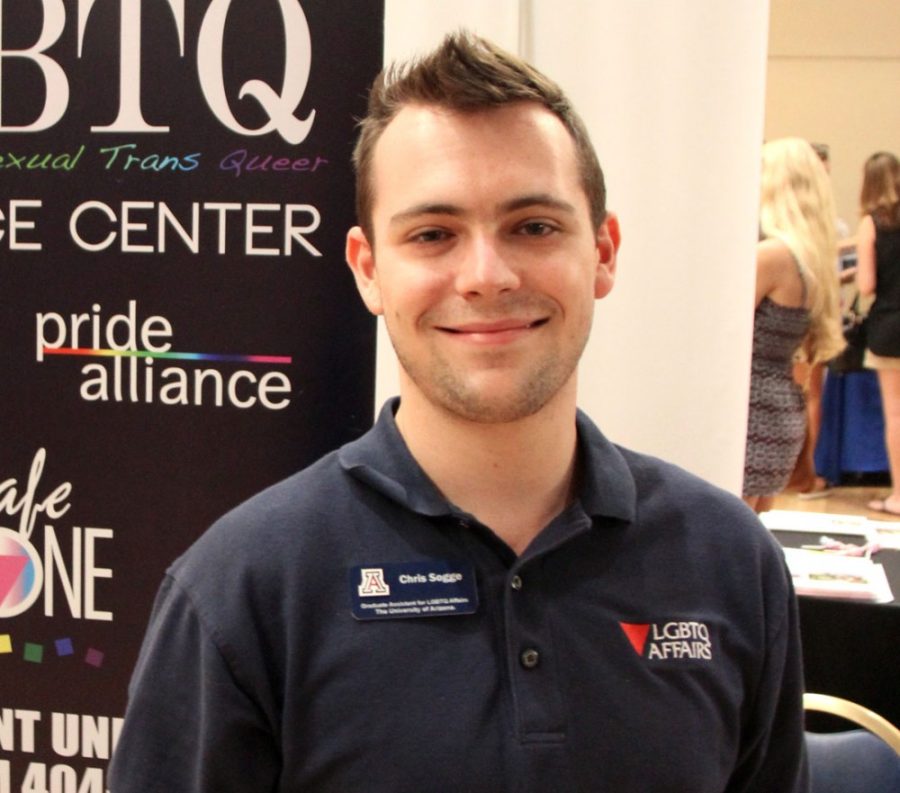As of June 2012, President Barack Obama proclaimed the month of June as “Lesbian, Gay, Bisexual and Transgender Pride Month.”
Positive changes and important conversations regarding current LGBTQ issues continue to gain publicity. The UA leads efforts in creating a more friendly, tolerant and educated campus population in terms of LGBTQ awareness.
Popular examples of LGBTQ stories in the media include Caitlyn Jenner’s recent transition and coming out, the United States Department of Veteran Affairs denying equal federal benefits to married LGBTQ veterans in states that do not have equal marriage legislation, and debates surrounding the morality of LGBTQ members’ recognition in the Boy Scouts of America.
The UA offers bountiful resources and services for LGBTQ students ranging from needs assessments and therapy to social events and support groups.
The UA’s ASUA Pride Alliance began about 20 years ago as an Associated Students of the University of Arizona recognized club but lacked the institutional position to advance LGBTQ initiatives on campus.
In 2007, the LGBTQ Advisory Council recommended hiring a director of LGBTQ Affairs, which was later implemented by former UA President Robert N. Shelton. The position is currently filled by Jennifer Hoefle-Olson.
Today, the Office of LGBTQ Affairs oversees the operations, campus resources and programs. Chris Sogge, LGBTQ Affairs graduate assistant, said issues on campus reflect similar issues elsewhere because “we [the UA community] are microcosms of society.”
This year, Sogge coordinates the Pride Alliance internship, where he first got his start. “I’ve worked a lot of hats,” he said. “It’s cool to see how it works from so many different angles.”
He added the best way to understand the complexity of these issues is to educate yourself with knowledge and information, and noted that the major role of the Office of LGBTQ Affairs is to educate, primarily through its Safe Zone program.
According to Sogge, Safe Zone is LGBTQ cultural competency training split into two workshop days. Day one examines resources on campus and creates a resource framework for future discussions. Day two is more specific, focusing on oppression, statistics and hypothetical situations.
“It’s a place of openness, trust and respect,” Sogge said.
After completing the training, participants receive a Safe Zone placard signifying them as an identifiable source of support for members of the LGBTQ community.
“Since 2010, we have had over 5,500 people go through the program, and it’s definitely growing, which is fantastic,” Sogge said. “We offer it at least once a month for free and more advanced training like Trans101 classes that vary.”
Growth and tolerance can be seen across campus through recent LGBTQ initiatives like the “Chosen or Preferred Name Guidelines,” which was implemented in the spring, which “allows students and employees to change their names to their preferred name into the UA systems — D2L, UAccess, Catmail, CatCard and class rosters — even if they haven’t legally changed it,” Sogge said.
In addition, the LGBTQ Advisory Council will again take recommendations on what is currently needed by the LGBTQ community after being inactive for a year.
“It’s really heartening to see people thrive in the face of really problematic situations and a lot of obstacles from society,” Sogge said. “So even just surviving is thriving I think.”
_______________
Follow David McGlothlin on Twitter.









